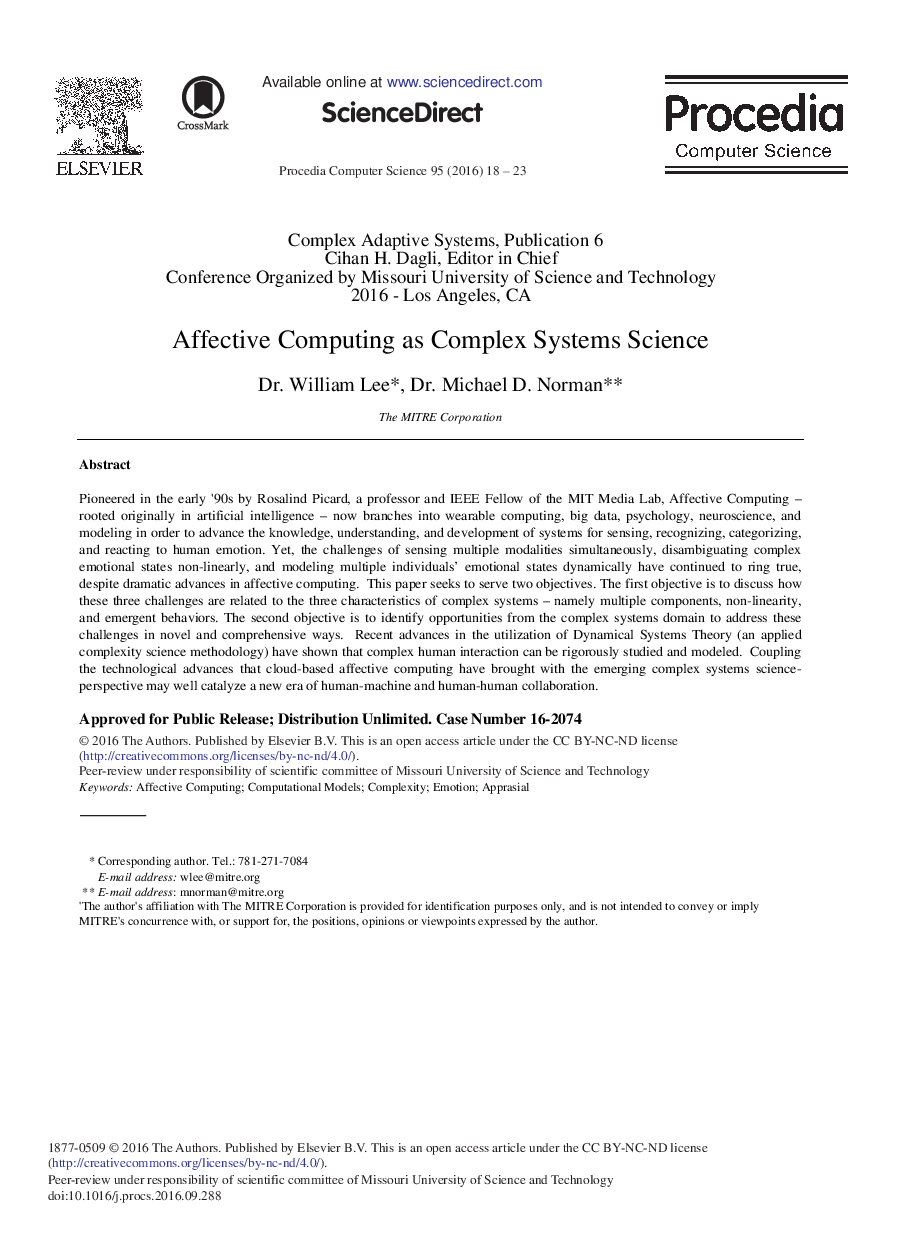| Article ID | Journal | Published Year | Pages | File Type |
|---|---|---|---|---|
| 4961930 | Procedia Computer Science | 2016 | 6 Pages |
Pioneered in the early '90s by Rosalind Picard, a professor and IEEE Fellow of the MIT Media Lab, Affective Computing - rooted originally in artificial intelligence - now branches into wearable computing, big data, psychology, neuroscience, and modeling in order to advance the knowledge, understanding, and development of systems for sensing, recognizing, categorizing, and reacting to human emotion. Yet, the challenges of sensing multiple modalities simultaneously, disambiguating complex emotional states non-linearly, and modeling multiple individuals' emotional states dynamically have continued to ring true, despite dramatic advances in affective computing. This paper seeks to serve two objectives. The first objective is to discuss how these three challenges are related to the three characteristics of complex systems - namely multiple components, non-linearity, and emergent behaviors. The second objective is to identify opportunities from the complex systems domain to address these challenges in novel and comprehensive ways. Recent advances in the utilization of Dynamical Systems Theory (an applied complexity science methodology) have shown that complex human interaction can be rigorously studied and modeled. Coupling the technological advances that cloud-based affective computing have brought with the emerging complex systems science-perspective may well catalyze a new era of human-machine and human-human collaboration.
